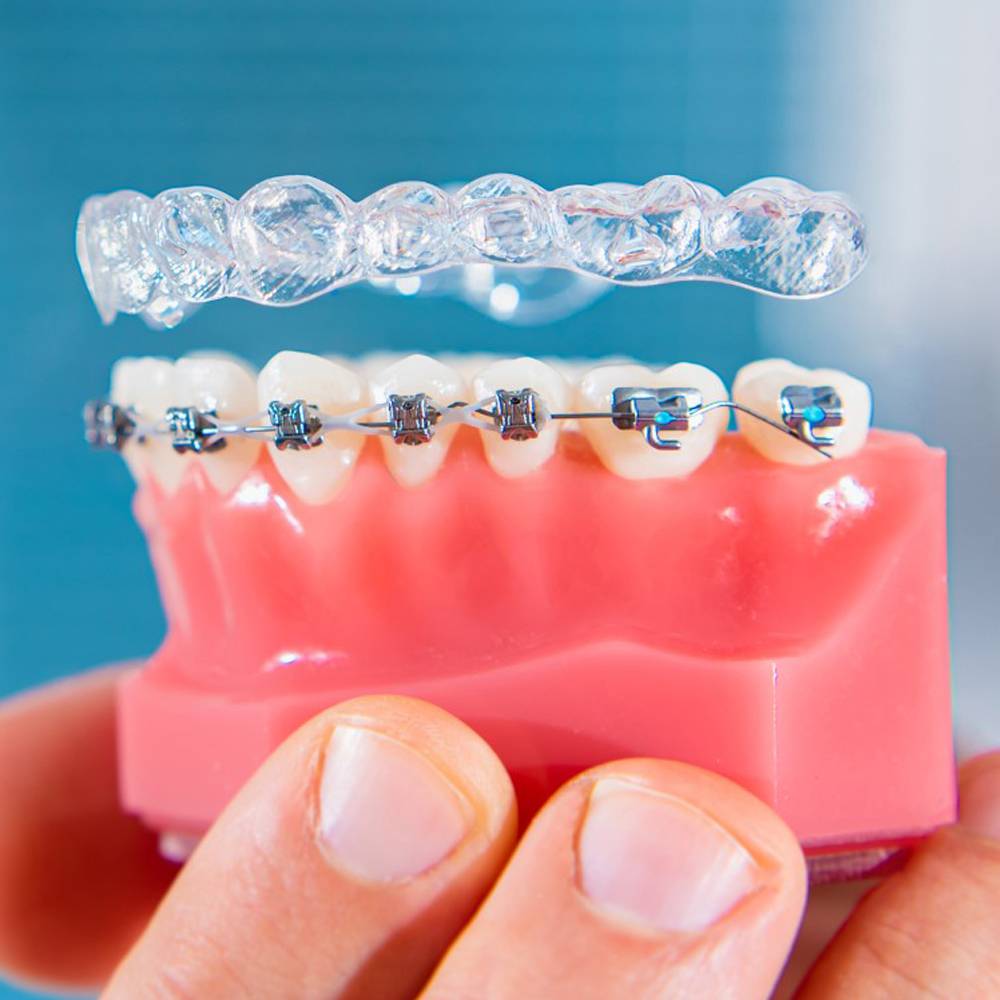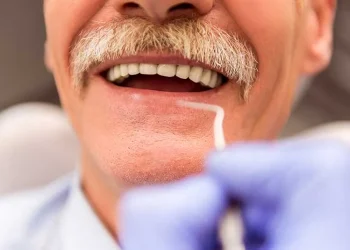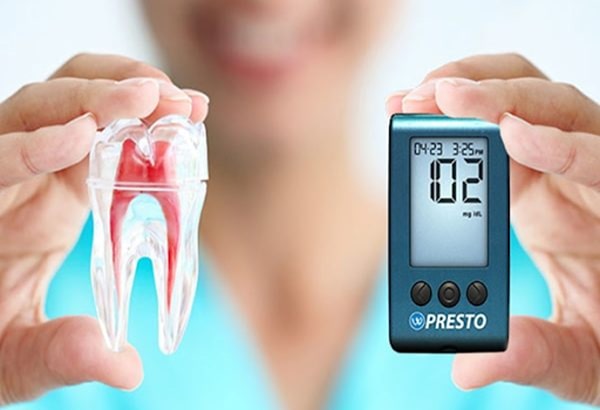Contents
- 1 Can You Have Braces When You Have Dental Implants?
- 2 Understanding Braces and Dental Implants
- 3 Is It Possible to Have Braces on Dental Implants
- 4 Should You Have Braces Before or After Dental Implants?
- 5 Risks of Having Braces with Dental Implants
- 6 What You Should Take into Considerations when Having Braces with Dental Implants
- 7 Maintenance and Care When Having Braces with Dental Implants
- 8
Can You Have Braces When You Have Dental Implants?
Getting braces is a common solution for those who have crooked teeth or bite problems. Dental implants, on the other hand, are artificial teeth that are placed into the jawbone to replace missing teeth. But what if you have dental implants and need orthodontic treatment? Can you have braces on dental implants?

Understanding Braces and Dental Implants
What are Braces?
Braces are orthodontic devices used to correct bite problems and straighten crooked teeth. They consist of brackets that are attached to the teeth and connected by wires, which are gradually tightened over time to move the teeth into the desired position.
What are Dental Implants?
Dental implants are artificial teeth to replace missing teeth. The implant itself is a small titanium post that serves as the root of the new tooth. Once the implant is placed, a crown or bridge can be attached to it to create a natural-looking replacement tooth or teeth.
Is It Possible to Have Braces on Dental Implants
It is possible to have braces on dental implants, but it requires careful planning and coordination between your orthodontist and implant dentist. The first step is to make sure that the dental implants are fully integrated into the jawbone before starting orthodontic treatment. This can take several months, depending on the individual case.
Once the implants are stable, your orthodontist will work closely with your implant dentist to develop a treatment plan that takes into consideration the location and angle of the implants. Brackets and wires can be attached to the teeth around the implants in the same way as with natural teeth, but the orthodontist must be careful not to put too much pressure on the implants themselves.
Should You Have Braces Before or After Dental Implants?
When considering the possibility of getting dental implants, it is important to keep in mind that there are multiple factors that should be taken into account. The decision of whether or not to have braces before or after the implants are placed can vary depending on your individual case. You should consider the condition of your teeth and gums, the alignment of your teeth, and the overall health of your mouth.
For some individuals, orthodontic treatment prior to implant placement is recommended. This can help ensure that your teeth are properly aligned, which can lead to a better outcome for the implant procedure. By correcting any misalignments or other dental issues prior to implant placement, you can help ensure that your new teeth are properly positioned for optimal function and aesthetics. Additionally, with orthodontic treatment before the implant procedure, you can improve the overall health of your mouth, which can make the implant procedure smoother.
On the other hand, in some cases, it may be better to have the implants placed first. This can provide a stable foundation for the braces and help ensure that they are properly supported. Additionally, in some cases, the implant procedure can actually help to improve the alignment of your teeth, which may make orthodontic treatment unnecessary.
It is important to emphasize that every individual’s case is unique. Therefore, you should consult with your dental team to determine the best course of action for your individual needs. They can provide you with the information, guidance, and support you need to make an informed decision and achieve the best possible outcome for your oral health and overall well-being. They can also help you understand the benefits and risks of each option to ensure that you are making an informed decision.

Risks of Having Braces with Dental Implants
Implant Failure
When considering the use of braces in conjunction with dental implants, it is important to be aware of the potential risks involved. One such risk is the possibility of implant failure due to the pressure exerted by the braces. This pressure can cause the implants to shift, or even fail entirely, if not adequately managed. It is therefore crucial to work closely with your dental professional to ensure that the appropriate measures are taken to minimize this risk. This may include the use of specialized braces or other orthodontic devices designed specifically for use with dental implants, as well as regular monitoring and adjustment of your treatment plan as needed.
Bone Resorption
Bone resorption is a common risk associated with having braces on dental implants. When braces apply pressure to the teeth, the surrounding bone tissue is stimulated to remodel. This remodeling process leads to bone resorption or the breaking down of the bone tissue. This process can be accelerated when braces are applied to dental implants due to the additional pressure that they apply. As a result, bone resorption can cause the implant to become loose or even fall out in some cases.
What You Should Take into Considerations when Having Braces with Dental Implants
Treatment Time
When it comes to dental implants and braces, one important factor to consider is the length of the treatment process. This is because the implants need to be fully integrated with the jawbone before orthodontic treatment can begin, which can add some additional time to the overall treatment process. However, please note that this extra time is necessary to ensure that the implants are stable and fully integrated, which can help to prevent complications down the road. So, while the treatment process may take a bit longer with dental implants and braces, the end result can be well worth the extra time and effort involved.
Expense
When considering orthodontic treatment, the cost of having braces on dental implants is an important factor to take into account. While orthodontic treatment can be expensive in itself, having dental implants adds a considerable amount to the overall cost. It’s important to discuss these options with your orthodontist to come up with a treatment plan that works for your budget and lifestyle.
Maintenance and Care When Having Braces with Dental Implants
If you have dental implants and are considering orthodontic treatment with braces, it’s important to understand the maintenance and care required to ensure the success of your treatment. Proper maintenance and care are crucial to avoid complications, such as implant failure and bone resorption.
Regular Dental Check-Ups
Taking care of your oral health is crucial, and scheduling regular dental check-ups with your orthodontist and implant dentist is one of the most important things you can do. These check-ups are not just routine appointments, but rather an opportunity for your dental team to monitor your progress and ensure that your implants and surrounding teeth are healthy and free from damage. In addition to providing guidance on proper oral hygiene practices, your dental team can also help you understand the benefits of preventive care and recommend any necessary adjustments to your treatment plan so that you can maintain a healthy, beautiful smile for years to come.
Proper Oral Hygiene
Proper oral hygiene is a crucial component in maintaining dental health, especially when undergoing orthodontic treatment with braces and dental implants. Ensuring that you brush and floss regularly is fundamental in preventing the accumulation of plaque, which can lead to gum disease and tooth decay. Furthermore, maintaining healthy gums is imperative in preventing the loosening of dental implants, which can cause discomfort and difficulty in biting and chewing. It is highly recommended that you consult with your dental team to receive guidance on proper brushing and flossing techniques, and to receive recommendations on the most effective oral hygiene products.
Avoid Certain Foods
When you have braces with dental implants, there are several precautions you should keep in mind to avoid any damage to the brackets and wires. Hard foods such as apples, nuts, and popcorn can potentially loosen or break the brackets, leading to further discomfort and lengthening the duration of your treatment. Sticky foods like caramel, gum, and taffy can also be problematic as they tend to get stuck in the wires and brackets, making cleaning them difficult and potentially causing decay. Furthermore, chewy foods such as bagels, beef jerky, and licorice can cause the wires to bend or move out of place, which can also cause discomfort and delay the progress of your treatment. Therefore, it is essential to avoid these types of foods.
Wear a Mouthguard
If you participate in sports or other physical activities, it is crucial to take care of your overall dental health. A mouthguard can be an excellent way to protect your braces and dental implants and prevent any damage from occurring. It is essential to choose the right type of mouthguard that fits your braces or dental implants properly. A poorly fitting mouthguard can cause more harm than good, so it is essential to have your dentist or orthodontist fit you with the right one.
Follow Your Orthodontist’s Instructions
When you get your braces, your orthodontist will give you detailed instructions on how to take care of them. By following these instructions, you can avoid any complications that may arise during your treatment and ensure that it is successful. Additionally, your orthodontist may recommend certain products or tools to help you take care of your braces, such as special toothbrushes or mouthwash. It’s important to use these tools as directed to get the best possible results from your treatment. Remember, the success of your treatment depends on how well you take care of your braces, so be sure to follow your orthodontist’s instructions closely and ask any questions you may have.
In conclusion, having braces on dental implants is possible, but it requires careful planning and coordination between your orthodontist and implant dentist. While there are risks and considerations to keep in mind, the end result can be a beautiful and functional smile. If you have dental implants and are considering orthodontic treatment, speak with your dental team to determine the best course of action for your individual needs.















